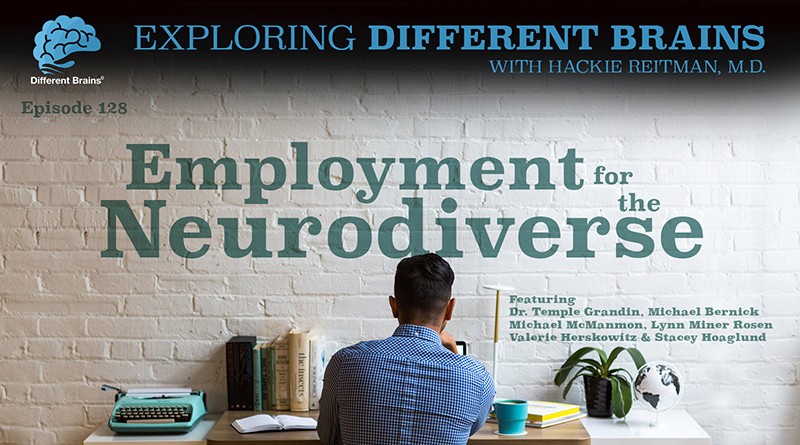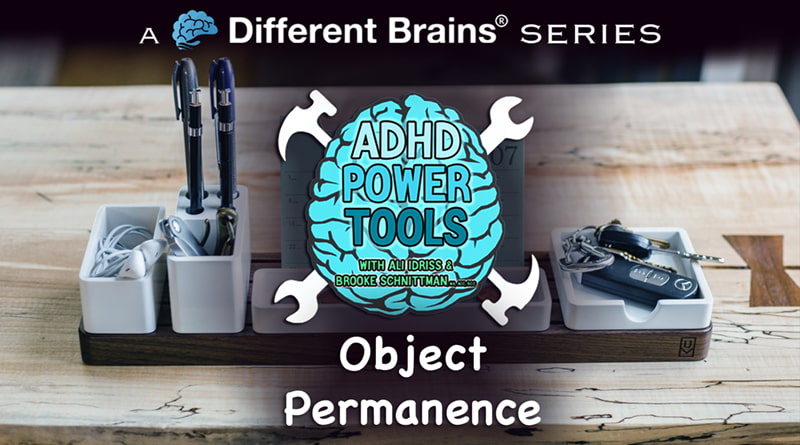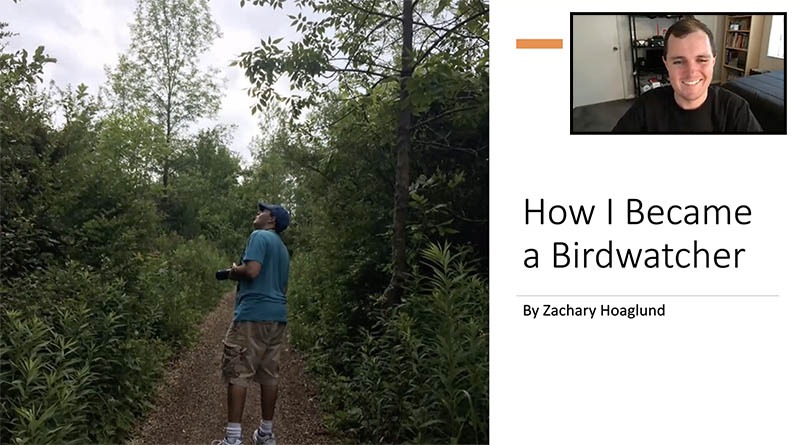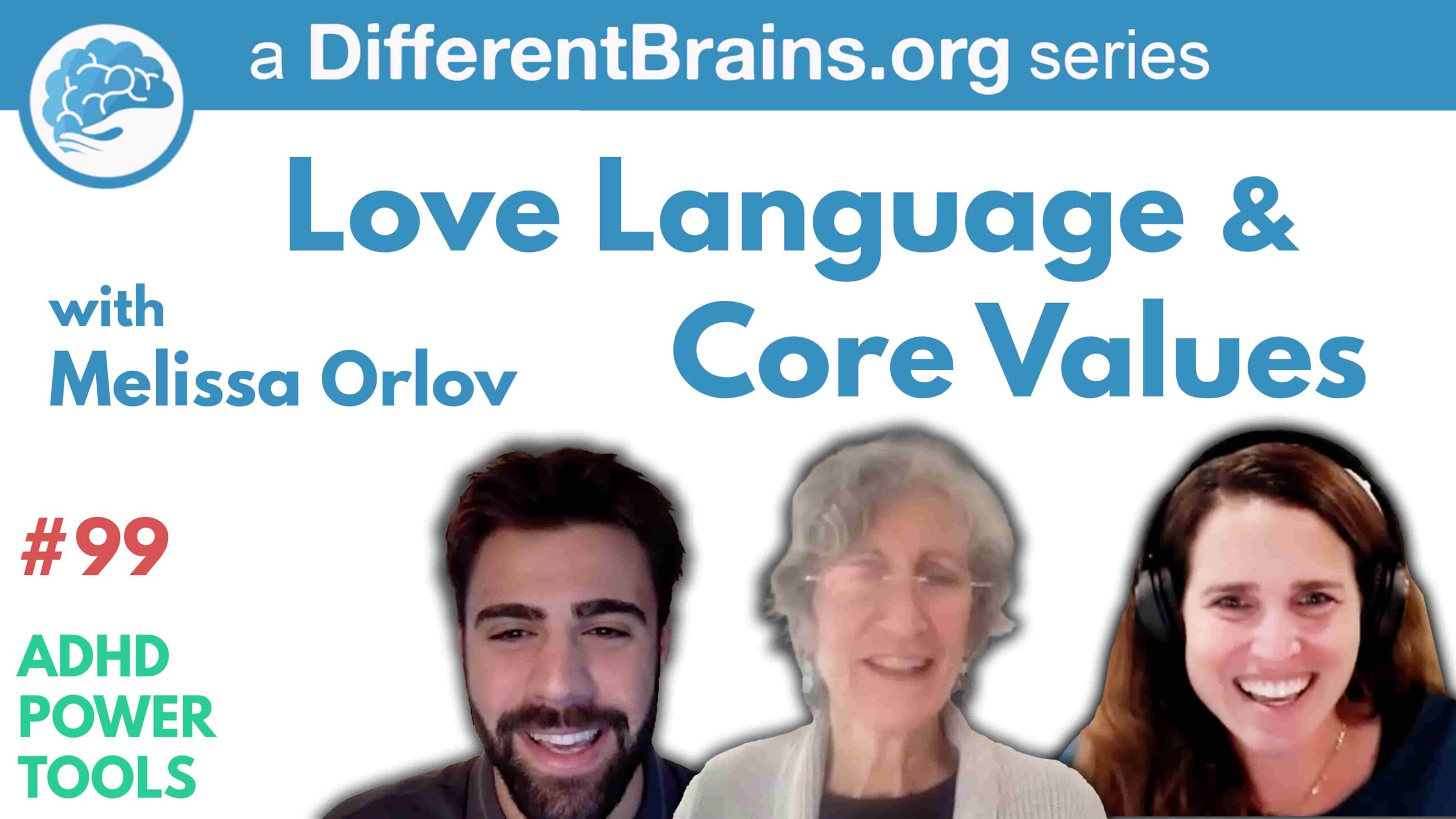
Employment for the Neurodiverse, with Dr. Temple Grandin, Michael Bernick, and more | EDB 128
(21 mins) In this episode, Dr. Hackie Reitman explores the topic of finding employment for the neurodiverse by revisiting clips from some of our brilliant past guests. Featured are: Lynn Miner-Rosen, M.Ed., BCC, CDCS (Board Certified ADHD Coach and Career Coach for College Students and Young Adults. She also has personal experience with learning disabilities as a person with ADHD, and a parent), Michael McManmon, Ed.D. (speaker, writer, artist psychologist, and founder of the College Internship Program [CIP]—a post-secondary program serving students with Asperger’s Syndrome, autism, high functioning autism, ADHD, and other learning differences), Stacey Hoaglund (President of the Autism Society of Florida, the editor of The Autism Notebook Magazine, a tireless advocate who is on every nonprofit board you can think of, and the parent of a son with autism), Valerie Herskowitz (founder of the Chocolate Spectrum, a chocolate shop in South Florida staffed by people on the Autism Spectrum), Michael Bernick (former director of California’s labor department, co-author of “The Autism Job Club,” and board member of AASCEND), and celebrated autism advocate and author Dr. Temple Grandin.
FOR MORE ABOUT LYNN MINER ROSEN, VISIT: http://www.coachlynnmr.com/ FOR THE FULL INTERVIEW: https://differentbrains.org/achieving-goals-adhd-lynn-miner-rosen-edb-105/
FOR MORE ABOUT MICHAEL McMANMON AND CIP, VISIT: http://collegeinternshipprogram.org/ AND LOOK FOR HIS BOOKS AT: http://www.jkp.com/ FOR THE FULL INTERVIEW: https://differentbrains.org/college-internship-program-helping-neurodiverse-find-careers-michael-mcmanmon-ed-d-edb-98/
FOR MORE ABOUT STACEY HOAGLUND, VISIT: https://www.facebook.com/stacey.hoaglund AND https://www.facebook.com/TheAutismNotebook/ FOR THE FULL INTERVIEW: https://differentbrains.org/parent-advocates-supporting-kids-autism-spectrum-stacey-hoaglund-edb-78/
FOR MORE ABOUT VALERIE HERSKOWITZ AND THE CHOCOLATE SPECTRUM, VISIT: http://thechocolatespectrum.com/ FOR THE FULL INTERVIEW: https://differentbrains.org/chocolate-spectrum-autism-employment-one-sweet-time-w-valerie-herskowitz-edb-107/
FOR MORE ABOUT MICHAEL BERNICK AND AASCEND, VISIT: http://www.aascend.org/ AND LOOK FOR HIS BOOK AT: http://www.autismjobclub.com/ FOR THE FULL INTERVIEW: https://differentbrains.org/exploring-different-brains-episode-05-michael-bernick/
AND, FOR MORE ABOUT DR. TEMPLE GRANDIN AND HER BOOKS, VISIT: http://www.templegrandin.com/ FOR THE FULL INTERVIEW: https://differentbrains.org/autism-employment-dr-temple-grandin-edb-94/
.
80 Second Preview:
.
To listen or download the podcast version of this episode, see the embedded player below.
Or look for us on your favorite podcast provider:
iTunes | Stitcher | SoundCloud
HAROLD REITMAN (HR): Hi, I’m Dr. Hackie Reitman. Welcome to another episode of Exploring Different Brains. This is kind of a special because what we figured we would do here is gather together some of our great Exploring Different Brains interviews to stress that most important aspect of neurodiversity which is employment. First, let’s hear from Lynn Miner Rosen, who’s a life coach and ADHD coach, and is dedicated herself to maximizing the potential of those of us with different brains.
HR: As our mutual friend Temple Grandin says, we gotta get a job. You’ve got to get a job.
LYNN MINER ROSEN (LMR): Well Temple absolutely hit it on the head. As far as parents need to help their kids get experience and get jobs and have responsibilities, and she’s right on with that. And what I’m seeing is there’s a lot of these kids that have these neurodiversities and invisible challenges are not preparing while they’re in college. But it’s not really anybody’s fault, I mean it’s so wonderful they’re going to college. That’s a relatively new thing. And I think that a lot of parents are really happy they’re just in school. And just let them be and they don’t have to get a job just as long as they pass their classes. But I think there’s a few other little things they can do while they’re in college so they’re more competitive when they get out. And it’s not just about academics. Because a lot of these companies–businesses that are hiring–are looking for things like social skills and transferrable skills, being more important than academics. So practicing eye-to-eye contact, practicing standing up in front of a crowd, or doing public speaking, teamwork, how to work together, how to get along with other people. And the way you’re going to learn that is–there’s many ways–volunteering is great. Or getting a job. Any job. Doesn’t matter what field, a job. And experience. Joining clubs and organizations. And it’s not about what club, it can be the chess club. And it’s not even about pumping up your resume, it’s really about learning those skills, about getting along with other people. Because employers know if you belong to all those clubs, or whether it’s the newspaper club or a public office in school. They know you’re learning those skills that are really important for on the job. Getting along with teachers. Having some kind of conversation with teachers. So what do you see as a parent and as somebody in the industry and doing a lot of public speaking as the biggest challenge for these young adults that are going into college and graduating college and looking for a job?
HR: Well I think in my view, one of the most worrying statistics to me goes back to what you and Temple Grandin feel so strongly about. Getting that high school job, getting into the work force. Like when I was in medical school, Boston University, I was hustling six jobs. I was a bouncer at a bar, I was reading to a blind lawyer, I was drawing blood at 4:30 in the morning to get free meals at the hospital, it was great. And it was a good time too. But I think on of the statistic I heard recently was that the percentage of teens in the workforce which used to be in the 30s is now down in the teens. And the other statistic that really bothers me, I don’t remember the exact numbers but it’s something like 36% of people under 40 are living with their parents. And this is not a trend. I think that giving the tools to independence and employment is one of the best gifts we can give our kids. And we want to give them roots and wins as the old saying goes. And I think as parents–I’m generalizing of course–I have not stressed that early enough. I think that’s a very important thing. And that I think is the big key because I think that this whole new world that all these millennials, that we all find ourselves in is just so totally different. When I was growing up, you play stickball for a couple hours with the guys I’m still best friends with, nobody bothered you or nothing. Now you fast-forward to now. It’s like you don’t get a spare minute to even think. And whereas the printing press took a couple of hundred years to change things around, Facebook changed in about eight months. And going on, and on, and on. I think personally, that if I’m a teen now, I’m in middle school or high school and my brain does not rewire itself, evolutionarily, I will not survive as a teen unless I develop some ADHD. Unless I can simultaneously listen to my mother, watch a video, text my friend, and be playing a videogame at the same time. I’m a social outcast. I’ll get left behind. And there’s not a lot of reward now for focus, for sitting down and reading a book for three hours. And there’s certainly not a lot of impetus now a days to go to work. And get a job.
LMR: Yeah, and I also think that there’s a lot of misconceptions about “Oh, it’ll be easy to get a job. I’ll just go online and apply. And I’ll just plug in my resume and “poof, I’ll get lots of people to call me.” And I only say this with the work that I do, is that people spend more time looking for cars. And figuring out the legroom and the headroom and the color, or a vacation, you know. What hotel, how long are we going to go there, what’s the temperature? They spend more time on cars and vacations than on choosing a career. And it’s about choosing your passion. And they’re not figuring that out.
HR: Well you just hit the key thing. Because they’re not getting the exposure. Nobody’s talking to them about it. And it amazes me that these clueless parents like me whose maybe now a little less clueless. But what’s amazing to me when I meet families and I meet a lot of them when they come in, and I say “what is your child–who might be 35 years old–interested in?” “Oh, I don’t know?” Well then I meet the individual, and say “what are you interested in?” and they’re glad to tell you. They’re glad to tell you what they’re interested in. But many times, they don’t have an interest and those are the ones that get exposure. Or the reverse is also true. I like telling the story out of our Boys and Girls Club of Broward County. We serve about 12,000 kids. Our outstanding youth of the year many years ago was Selena Constantine. She was wonderful She happened to be from the Hackie Reitman unit. And she was going to go to FSU, she had a scholarship. And she was going to fulfill her lifelong dream, she always wanted to be a neurosurgeon. So I said “Have you shadowed a surgeon?” She said no. I said “I’ll arrange for you to shadow one.” She said “Why don’t I shadow you?” I said “Well I’m just an orthopedic surgeon.” But she goes “Well I might be interested in orthopedic surgery.” So she shadowed me for two weeks. And when she accepted a scholarship, she told the board that “I wanted to be a surgeon my whole life and I’m going to FSU. And I especially want to thank Dr. Reitman because I shadowed him for two weeks and I’m proud to say I will be majoring in criminology.” She did not want to do it, but how’s she supposed to know?
LMR: Well that’s the work that I do with my clients. While they’re in college, I recommend they join clubs and organizations and get work experience so they get what they like and don’t like. That’s really important. And get exposure. The work I do is also figuring out what are your interests, what are your goals, what are your passions, what are your skills, what skills do you want to learn? I had one client who went to college and he had very significant ADHD and a stutter, and anxiety, and really struggled. But he went to school and he was so successful in the band. And his parents were just so happy he graduated. They were just happy he was there. He never had a job, he never went to a career office, he never thought about careers until he graduated. And then a year went by working, and then another year went by, and he really thought he was going to be destined to be in the music industry forever. And we started doing some work and he realized when he did some informational interviews, and I helped him with what questions to ask, how to get there, who to call. He did some information interviews and job shadowed a physical therapist and an occupational therapist. And decided that’s what he wanted to do. And all his whole time in college thought he was going to be in music forever. And it wasn’t his passion.
HR: Next, we’ll hear from Michael McManmon, the head of the college internship program. That’s the post-secondary program serving students with learning differences.
HR: If you find the job that you love doing in an environment you like and you’re good at it then you can also make a good living and help other people at the same time. That’s a trifecta. And our system doesn’t provide for that. College Internship Program does. Right.
MICHAEL McMANMON: Right. Everyone has to have an internship and everyone has to do community service, no matter whether they’re going to college or not, they still have to have an internship because you notice that the med schools now and the veterinary schools and the law schools won’t take anyone unless they’ve actually worked in a law office or a veterinarian office because they get these people who take up space. It’s very expensive to get a veterinary degree and then they become a veterinarian and they don’t want to deal with blood or poop and so it’s a real problem. Lawyers, how many lawyers do you know who don’t practice law anymore with law degrees either can become a politician or retire. So it’s a problem and I would tell parents that you want to have your kid experience all kinds of work environments and volunteer positions because you don’t know what you don’t know. And just because they’re good at they think they’re going to be a video programmer or whatever you know they think of video game whatever, which a lot of them are stuck on, doesn’t mean they really are better at something else or will like something better. I went for an English BA in college and I volunteered at lots of different volunteer positions. When I went to an orphanage on the weekends you know a little you know a station wagon, I guess they don’t have station wagons anymore, but we’re in a station wagon with a bunch of guys and girls from the college and guess what? Doing that community service, I learned I wanted to work with kids and I met my wife in the back of that station wagon with a whole bunch other people. And so that’s what happened and so we need to get them out there doing different things just because you fed their special interest which is video games or whatever and you say “oh he’s really good at this, he knows everything about this” doesn’t mean he’s really good at that. He could be better at something else or enjoy something else even more but that’s when he got attention for and that’s what he was interested in when he was a child. So it doesn’t mean that he’s you know you got to look at the whole picture.
HR: Next up is Stacey Hoaglund. She’s the president of the Autism Society of Florida, the editor of the Autism Notebook magazine, a tireless advocate who’s on every nonprofit board you can think of, and the parent of her son, Zach, who’s on the spectrum, and by the way, who’s one of our very good, excellent interns here at Different Brains.
STACEY HOAGLUND: And you know, the way I look at it is as far as employment goes I want him to be included in his employment. So even if it means a job at Publix or Wal-Mart or Sear’s or Penny’s or Home Depot, whatever it might be. That’s fine. If that’s where he wants to work. I am a big proponent of being included. Included with everyone else when it comes to your employment opportunities. And so if you can’t make a go with it within the film industry, he will always have that as a hobby and something that he enjoys. And his friends are likeminded in that so they enjoy it. They go out, and they film, and they love it. So if that’s a pastime for him, and that’s the way he chooses it to be with a job–because there’s a lot of people that work in a job every day that they don’t necessarily love going to but it’s a job and it pays their bills and does what they need to do. And if that’s who he is and he can spend his time when he’s not at the job doing what he loves, that’s fine too. Yes, ideally I would love for him to be in the industry. And if he can make that happen, which he has some pretty good contacts, so… I’m kind of assuming that he will, but if he doesn’t, that’s ok too.
HR: Now, let’s hear from Valerie Herskowitz, the founder of The Chocolate Spectrum, a chocolate shop in South Florida staffed by people, all of whom happen to be on the autism spectrum, and they do a great job.
VALERIE HERSKOWITZ: I’ve been really lucky but I’m also really persistent and I think if you go back to your original question about with what parents can do one thing that I just want to say to parents is that don’t wait around for somebody to come and drop something in your lap because that’s not going to happen. You need to be out there rattling doorknobs and trying to get people to open them to your kids. There’s a wonderful thing that happened hat I wanted to share. One of the individuals I know a parent up here literally went and he was looking for a job he really hit the streets, he hit the pavement and he and he didn’t wait and he didn’t end until he found a job for his son and it’s worked out beautifully…and he also works on those skills that his son needs and those jobs at home during the week. So his son not even graduated from high school yet. So if people think that there’s that their kids are going to graduate from high school at the age of 22 or whatever and there’s just going to magically be this incredible life for them when they’re done with high school that’s not there. You have to start planning way ahead and you have to start being very assertive and push. I guess that’s aggressive, but you have to see, you have to get out there and start making things happen it’s just not something that just appears.
HR: Now, let’s go all the way out to the California coast, out the San Francisco way, where Michael Bernick of AASCEND, and who also is the author of The Autism Job Club. Let’s hear from him on employment.
MICHAEL BERNICK: Well, let’s start with the first advice I give everyone (and I follow it myself): don’t do it alone. you’re not alone in this, and don’t try to take on the job placement um–task for a son or daughter or neighbor or other family on your own. There’s–the first thing I tell people is #1 get an autism coach. If you can qualify for the department of rehab services, or, what we call out here in California, Regional Center services–a variety of government services. Get someone outside of the family to work with your son or daughter or nephew or niece. I think that outside influence is very important, Hackie, and there are people who specialize in this. It’s a greater and greater specialty among job coaches. Coaches who work with adults with autism to find jobs. Now, what do these coaches do that’s so different? Well, in some ways, they use the same techniques that all of us need to use these days in finding employment. Either full-time employment, or independent contracting or otherwise. First, they look at–you know, they use the job boards but they use them intelligently. The job boards do have some value, especially if you locate the ones particularly for your sector and your geography. But they, as everyone knows, are getting 200 résumés for every position. So you have to use them smartly. It’s also very important these days to just get in the door. If you’re having a difficulty getting a job, if there’s some part-time work you can get with a firm, or independent contracting, or even volunteering. Though, the volunteering needs to be structured. I think highly structured in most cases. But you want to get in the door. That’s the most important thing you can do these days. Get in the door, and the other important thing is, if you can–if you’re looking for a job, when I say use a smart–job board smartly, try to get a referral from someone within that particular firm, because these human resources people will tell you they’re getting 200 résumés for most positions, maybe not all, but they’re getting a lot of résumés. Because of the E’s, the job boards make it so easy to apply for jobs these days. It means that, on the other side, more and more people apply. So, those are some of the techniques, again, getting a job coach, using job boards smartly, getting in the door, getting a referral from someone within a firm, those are techniques, I think, that apply to everyone these days, but, particularly for our community.
HR: Finally, no discussion of employment and neurodiversity would be complete without including the great Dr. Temple Grandin.
TEMPLE GRANDIN: My mother had a really good sense of just how much to stretch me slightly outside my comfort zone so I’d keep learning and doing new things. It was her idea to have me go out to my aunt’s ranch and after I’d done my aunt’s ranch for two summers she said, “well lets do something else and we’ll do the aunt’s ranch for half the summer and we’ll do an internship at a research lab for the other half of the summer.” Also, I was an aid for a child with autism, another half of the summer. Always stretching, she never threw me into the deep end of the pool, but always stretching and doing new things. I was hostess at her parties with I was 7, 8 years old. She got me a sewing job when I was 13 years old, and when I went away to my boarding school I ran the horse barn, cleaning stalls everyday, putting the horses in and out, feeding the horses. And now, when I look back on it, riding the horses was really fun, but actually the most important thing for my development was running the horse barn and learning how to work.
.




